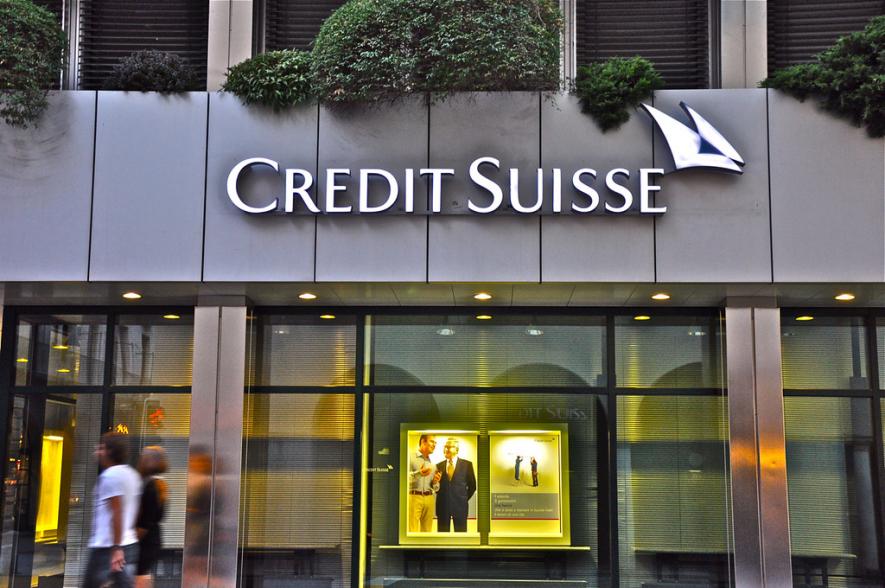UBS AG Takeover of Credit Suisse Ends Bank’s 166-Year History

Image Courtesy: Flickr
New Delhi: After ‘tense’ talks over the weekend, UBS Group AG agreed to buy Credit Suisse in an all-share deal for about $3.25 billion, less than the market value of troubled US lender First Republic Bank.
According to a report published in Business Standard, the government-brokered sale marks the Swiss bank’s final fall from grace, succumbing to a crisis of confidence that threatened to spread to global financial markets. The move marks the end of Credit Suisse's 166-year history as a unified bank.
Switzerland's executive branch, a seven-member governing body that includes Berset, passed an emergency ordinance allowing the merger to go through without shareholder approval.
According to a report in The Economic Times, Credit Suisse Chairman Axel Lehmann called the sale “a clear turning point.”
“It is a historic, sad and very challenging day for Credit Suisse, for Switzerland and for the global financial markets,” Lehmann said, adding that the focus is now on the future and in particular on the 50,000 Credit Suisse 17,000 of whom are in Switzerland.
Designated as one of the world’s 30 systemically important banks, Credit Suisse is the biggest casualty of the financial turmoil triggered by central banks as they tighten monetary policy to rein in inflation. While concerns about further contagion are sure to persist, the sale to UBS avoids a disorderly collapse.
Following news of the Swiss deal, the world’s central banks announced coordinated financial moves to stabilize banks in the coming week. This includes daily access to a lending facility for banks looking to borrow U.S. dollars if they need them, a practice which was widely used during the 2008 financial crisis.
The all-share deal has priced Credit Suisse at around one-fourth of its closing price at the end of the trading session on March 17, when the lender valued at about $8 billion.
The plan, negotiated in hastily arranged crisis talks over the weekend, seeks to address a massive rout in Credit Suisse stock and bonds over the past week following the collapse of smaller US lenders. A liquidity backstop by the Swiss central bank failed to end a market drama that threatened to send clients or counterparties fleeing, with potential ramifications for the broader industry.
Bloomberg reported earlier that US authorities have been working with their Swiss counterparts because both lenders have operations in the US and are considered systemically important in Switzerland.
A $54 billion financing backstop from the Swiss central bank - sealed in the dead of night on Thursday to calm jitters — failed to become the lifeline Credit Suisse had hoped. With the country’s banking sector at risk, Swiss authorities stepped in to push UBS to become a reluctant white knight.
According to the report in BS, the Swiss government “regrets that CS wasn’t able to master its own difficulties — that would have been the best solution,” Finance Minister Karin Keller-Sutter said at a press conference in Bern on Sunday. “Unfortunately, the loss of confidence from the markets and customers was no longer able to be halted.”
Before the global financial crisis — which Credit Suisse survived without a bailout, unlike many of its peers — the Swiss lender had more than $1 trillion in assets, but after years of decay, they’ve dwindled to about $580 billion, roughly half of UBS’s.
“Let us be clear, as far as Credit Suisse is concerned, this is an emergency rescue,” said UBS Chairman Colm Kelleher, who will remain in the role after the transaction.
For Switzerland, the blow could be significant. Home to 243 banking groups and 24 branches of foreign banks, the country’s stability and wealth are largely reliant on the finance industry. The combined assets of UBS and Credit Suisse are roughly double the size of Switzerland’s gross domestic product, and Sunday newspapers from tabloids to broadsheets were filled with stories about the looming demise of a national icon.
Credit Suisse has been embroiled in various scandals – among these are it being accused of helping store billions of money ‘stolen’ by Ferdinand and Imelda Marcos of the Philippines in 1986, in accounts opened under fake names, according to The Guardian.
In 1999, the Swiss bank was fined by the Japanese authorities over a “shredding party”, aimed at destroying evidence related to a probe into some companies trying to cook up their books.
In 2004, the bank was reprimanded for accepting millions of funds linked to Nigerian military dictator Sani Abacha’s corruption, according to The Guardian.
The other scams and scandals in which the Swiss bank was named are the 2004 Japan yakuza gang laundering case, a tax evasion case in Germany, in the US sub-prime bond fraud in 2012 among others.
Get the latest reports & analysis with people's perspective on Protests, movements & deep analytical videos, discussions of the current affairs in your Telegram app. Subscribe to NewsClick's Telegram channel & get Real-Time updates on stories, as they get published on our website.
























